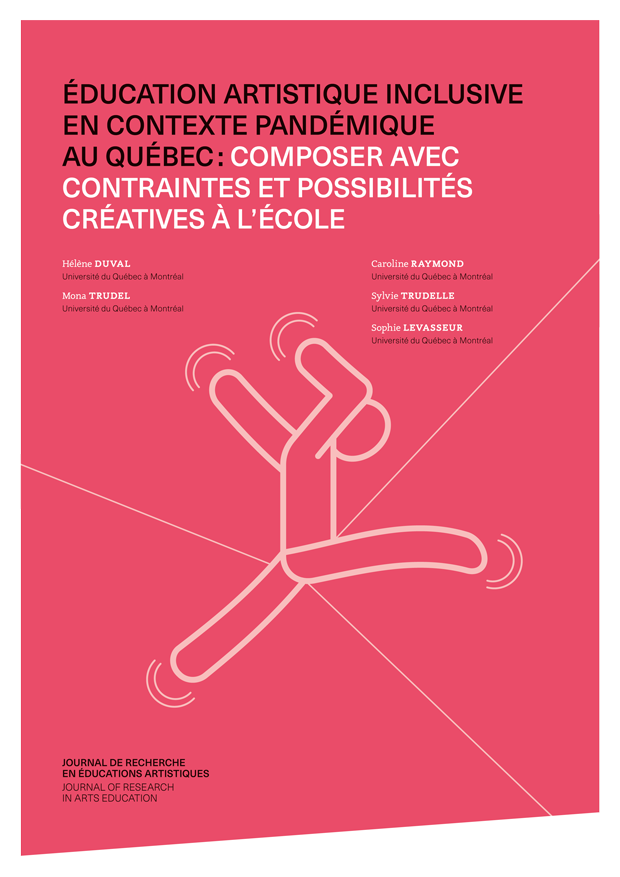Éducation artistique inclusive en contexte pandémique au Québec: composer avec contraintes et possibilités créatives à l'école
DOI:
https://doi.org/10.26034/vd.jrea.2024.6118Keywords:
arts education, inclusive practices, dance, intercorporality, intercultural education, pandemicAbstract
This article presents the results of a partnership research project that brought together educational advisors from the Centre de services scolaire de Montréal (CSSDM) and researchers from the Université du Québec à Montréal (UQAM). Conducted with 16 teachers (drama, visual arts, dance, music), the general objective of the study was to develop new knowledge from inclusive practices in arts teaching at primary and secondary levels, in times of pandemic. In-depth analysis of two pedagogical projects, as well as individual and group interviews, shows how teachers transformed the bodily constraints of the pandemic into creative opportunities in arts education.

Downloads
Published
Issue
Section
Categories
License
Copyright (c) 2024 Hélène Duval, Mona Trudel, Caroline Raymond, Sylvie Trudelle, Sophie Levasseur

This work is licensed under a Creative Commons Attribution 4.0 International License.
The CC-BY licence authorises the sharing and adaptation of the document provided that the work is credited, a link to the licence is included and it is indicated whether any modifications have been made.


